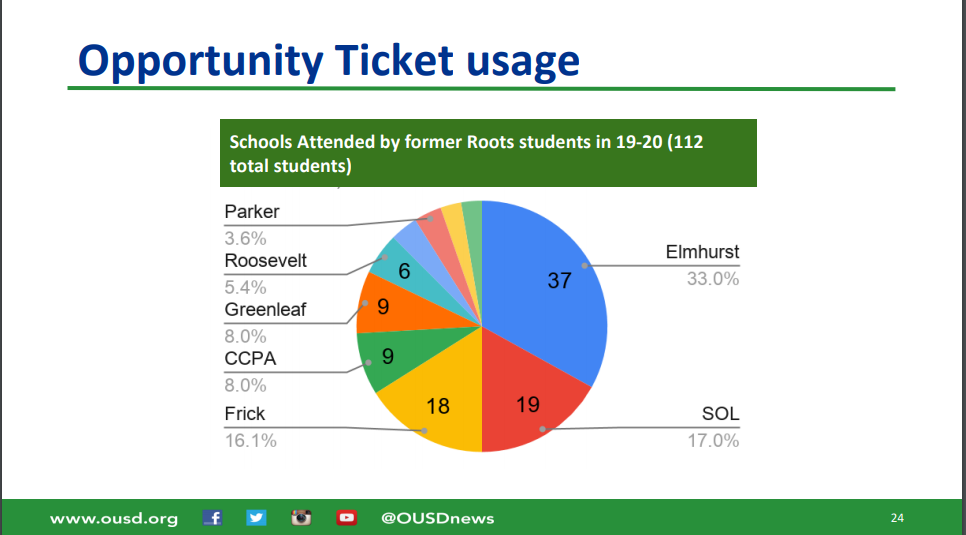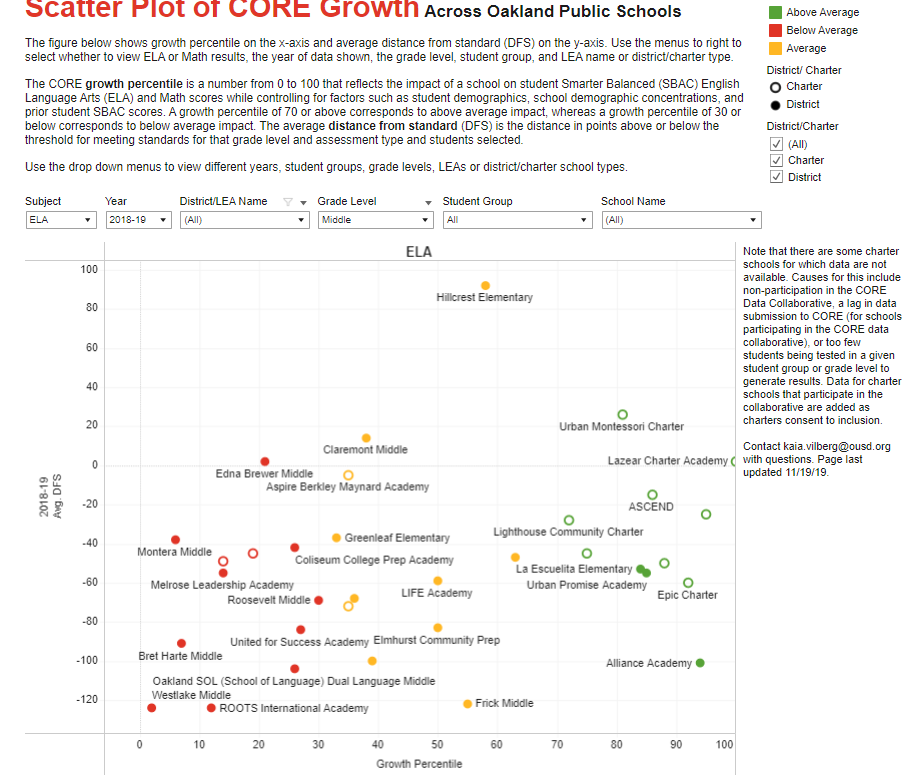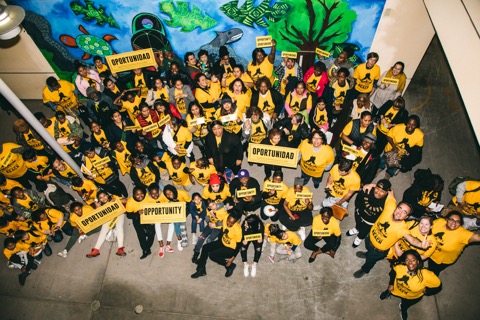For my own mental health I skipped the last board meeting, but by the next day a half dozen, mostly fuming, folks had reached out to me on enrollment data the district presented. And the presumed twisting of a policy that I helped write and pass, The Opportunity Ticket(OT). While the idea behind the policy was to allow underserved families to have better access to the schools of their choice, the presumed outcome from the data was that the most privileged families were the most active in using it, and that underserved families failed to.
Whether this result is a one off event or a likely continuing manipulation of the policy is an open question, but lets dig into it some here, and see what really happened.
Who Benefitted from the Opportunity Ticket
The goal of the OT was to support families in closing schools in getting the school of their choice. In most cases historically and really looking forward, the schools most likely to close will be those with majorities of underserved Black and Brown children. We will dig a bit more into the background later, but here were the numbers that raised hackles.
Of the two schools that closed/merged etc., last year, one was Kaiser which served a relatively privileged population, the other SOL caters to a largely underserved population. Eleven times more families from Kaiser used their Opportunity Ticket than SOL families. You can see the chart, only 8 of the 93 parents from SOL with an OT used it while 88 of Kaiser’s 221 eligible families used their OT. 88 to 8.

On its face, this is troubling. Did the OT create a system where the comforted are further comforted and the afflicted are further afflicted?
Maybe, maybe not, let’s look a little further into the numbers and also where students who used the OT or didn’t actually went. The first point I want to make is that these were both supposed to be mergers of schools. You didn’t hear nearly as much carping from the Sol parents as the Kaiser ones. You may remember them bum rushing the board, forcing cancellations of meetings and then remote meetings, launching a failed recall campaign and generally sucking up all the air in the OUSD meetings for over a month.
You might also note Kaiser’s overall absence from any debates about the system’s inequity or anyone else’s children. But let me get back to the point.
A Successful Merger or a Failure of Choice
Most of the SOL families attended the merging school, 70 of the 93 families. That is actually what we want in a merger. To create a larger school, with a more stable funding base, and the ability to provide more services.
Many of the Kaiser families demonized and othered the Sankofa community and seemed like they couldn’t go down the Hill themselves to try to make that merger a successful one. Though 51 of the 221 Kaiser parents did, and I have been very encouraged by the community forming there and also the academic program and supports.
Kaiser Is an Exception
And again, let’s be honest, there aren’t many more Kaiser’s on the back of the napkin closures list. It will be a lot more SOLs and Roots that are closing. And speaking of Roots, while they didn’t have a formal OT, they had an informal one as the enrollment office worked to support families in enrollment, when the school closed. Let’s see there they went and also look at the performance of those schools and Roots.

And here is the data from the schools, both in terms of how far ahead or behind students are and also the growth they are making at the school. Roots was one of the overall lowest performing schools and also was making very little progress, they were in the 12th percentile for growth. All of the schools these students went to were showing higher growth and also higher overall performance.

If the goal was to place students in a situation where they were more likely to succeed. That appears to have happened.
The Bigger Picture
Am I annoyed by the numbers, yes. I still have a bad taste in my mouth from how many of the Kaiser parents showed up, and to think my hard work and that of other Black and Brown parents to changes these rules would go to primarily benefit their privileged assses hurts me. But, the bigger picture is that they are likely a blip, and the ability to break the lock between where you can afford to live and where you get to go to school, is a quiet revolution in redistributing resources and opportunities. One that we need to continue to keep fighting for, in new enrollment pilots, in changing our school neighborhood boundaries, which not surprisingly correspond pretty well with redlining maps, and racially segregated housing.
So let’s not get caught up in the short sighted, knee jerking trap. I apologize for being a bit snarky and overgeneralizing on the Kaiser parents, but truth be told, they too deserve something from OUSD. Their school was closed, their children were displaced, and that can be hard on children and families. Kaiser was also a relatively high performing school, it just did not make financial sense. Their school was sacrificed for the larger budgetary good.
So am I thrilled with the numbers, no. But I am not necessarily disappointed either. We had a successful merger, the start of another one, and children from a chronically under resourced and underperforming school generally ended up at higher performing ones. Even the Kaiser parents, who were the district’s sacrificial lambs, deserve some leg up for their misfortune.
The largest win, is the breaking of a mindset. That you get to buy your school. That we will have a system that consistently rewards and advantages the advantaged, while providing the most paltry and under resourced offerings to our families that need resources the most. That is the design of the system and exactly how it works. So, if we can break the idea that our historically redlined neighborhoods should be recreated in our “neighborhood” schools. That is a victory, and one we should continue to fight to expand. The perfect should not be the enemy of the good. And anything that consciously is redistributing resources and opportunities amidst a rigged system is good.

